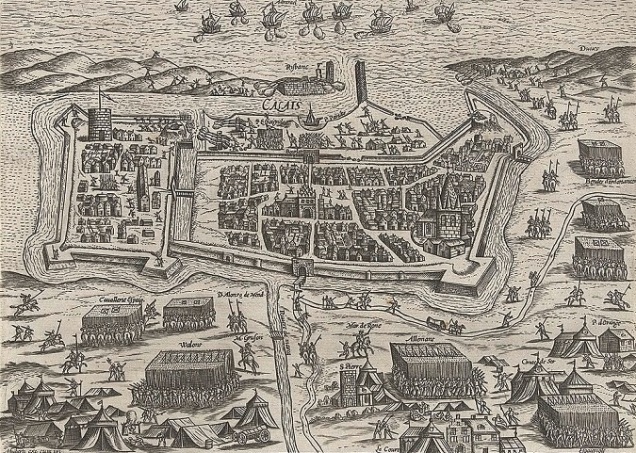 Another sorry harvest, and poor folks are starving. We cats keep well hid lest we be ate.
Another sorry harvest, and poor folks are starving. We cats keep well hid lest we be ate.
I did not see Nero this winter past, but my niece showed her saucie face again.
She told me that Nero’s old master has been ill. Linkin’s mistress wearied all by taking him healthful broths, and forbidding him strong liquors and tobacco.
 Nero did his best to help. He supped the broths to spare his master from drinking owt that lacked savour. And their friends came dropping by with bottles under their coats and tobacco in their pockets.
Nero did his best to help. He supped the broths to spare his master from drinking owt that lacked savour. And their friends came dropping by with bottles under their coats and tobacco in their pockets.
One night when my niece was creeping around Nero’s house (is there anywhere she don’t go?) she heared Nero’s master say to Linkin’s mistress, “I fear I’m breaking up fast. Should I die, take care of my old Blackie.”
My niece arrkst Nero who was Blackie.
“Damned if I know,” sayt Nero. “But never would I lodge with a prating puritan.”
I told my niece that Nero’s old master calls him Blackie. He calls hisself Nero, because he claims he was born in Fence [Venice]. Other cats say he first oped his eyes in Portsmouth and has never sailed further than France. I believe the truth may lie between.
“And now,” sayt I to my niece, “what of your kitlings?”
“There was but two. One black, one black and white, very handsome. I birthed them at Nero’s house, and they was took by sailors. Now I wish to continue my education.”
I arrkst myself, How long can this wish last with spring to come and more kits to follow?
I fear my niece may only be a winter skoller.
When next we met at our Field, Nero brought hot newes.
He sayt there is to be a great expedition against the Spanish, whose insolencie has no bounds. “They have been readying another great fleet to come against us, and fighting with the French too. Now they’ve attacked Calley [Calais].”
“True,” sayt Linkin. “Many in London heared their shot against Calley’s walls.”

“And would Her Majestie permit the Earl of Essicks to embark his soldiers and sail to Calley’s aid?” arrkst Nero.
All screeched, “She would not!”
“The Spanish took the place,” sayt Nero. “Today they’re in Calley, tomorrow where?”
“Here!” came a call.

“The Lord Admiral – a most excellent man – with the Earl of Essicks and Sir Water Rawly, is making readie to have at them,” sayt Nero. “But that’s a secret.”
Linkin sayt, “Not very secret. So many ships and men are sought. And the Lord Admiral don’t like Essicks, and Essicks don’t like Sir Water. They’ll have at each other before they have at Spain.”
“The Lord Admiral will hold all together,” sayt Nero. “But where will they strike at the Spanish? That’s secret.”
“I know where,” sayt Linkin.
“And I,” sayt Nero.
But neither would tell us. Then Nero sayt, “I would think shame to abandon my old captain – no true sea cat ever could. But should he go from this world, I’ll join their expedition.”
“How will you do that?” arrkst my niece.
“Certes, our Earl will not stay behind,” sayt Nero. “This is his chance to prove his valour. I shall sail with him.”
It was ever Nero’s custom to talk very high.
 King Philip of Spain (1527-1598) was rebuilding his navy, and by 1595 there were English fears of a second Armada. Opinions were divided over how best to deal with this. The Earl of Essex favoured a direct attack on Spain.
King Philip of Spain (1527-1598) was rebuilding his navy, and by 1595 there were English fears of a second Armada. Opinions were divided over how best to deal with this. The Earl of Essex favoured a direct attack on Spain.
An alternative option was to cut off Philip’s supply of funds by attacking Spanish treasure ships as they left the coast of Panama. The ever-cautious Queen Elizabeth eventually approved a small expedition of 27 ships to be led by Sir Francis Drake and Sir John Hawkins. A disaster. Drake and Hawkins quarrelled; first Hawkins and then Drake died; around half the ships were lost.
In spring 1596, before the survivors had struggled back to England, the Spanish took Calais. A counter-attack on Spain became a matter of urgency.
The Lord Admiral that Nero so admires is Charles Howard, who commanded the English fleet that saw off the Armada of 1588. Afterwards Lord Howard went to considerable lengths to help his sick and wounded sailors, risking Queen Elizabeth’s displeasure after she’d made it clear that she had no interest in their welfare.
Sir Walter Ralegh (or Raleigh) and the Earl of Essex were long-term rivals. Ralegh was remarkably talented: a poet and author, explorer, navigator, soldier, and courtier. He was also a favourite of Elizabeth’s, but his secret marriage to one of her gentlewomen, Bess Throckmorton, saw him and Bess imprisoned in the Tower in 1592. Bess was banished from the Court; Sir Walter spent some time living in the country or travelling, and then began working his way back into the Queen’s favour.
That Nero is so considerate when it comes to food tasting.
LikeLiked by 2 people
All heart, is Nero.
LikeLiked by 1 person
¡Que interesante! – Sol
LikeLiked by 2 people
As if there’s not enough to worry about with regard to the queen’s death, there’s also the Spanish. Things would be in a very sorry state if people started eating cats. They don’t need to worry about that for a while.
LikeLiked by 3 people
The Spanish were a source of anxiety for many (and adventure for the privileged few who wished to ‘prove their valour’) until James VI/I signed a peace treaty. Disappointing for a lot of pirates, I dare say.
LikeLiked by 2 people
I should think so. A way to get rich quick and to win the monarch’s approval.
LikeLiked by 1 person
Elizabeth certainly approved of self-funding ventures. I think (but could be wrong) that the reason she dallied over sending aid to Calais was because she was negotiating with Henri IV (formerly the Protestant ‘Paris is worth a mass’ Henri of Navarre) over what he would offer in return. Calais itself, perchance.
LikeLiked by 2 people
Calais had been lost in her lifetime, so getting it back would have been worth a bit of effort – and would have demonstrated that she was a better ruler than her sister, who lost it.
LikeLiked by 1 person
Plus I think she was a little weary of Henri’s requests for military aid, particularly after he turned Catholic. And he sent her an elephant, an expensive animal to house and feed.
LikeLiked by 2 people
He wasn’t the Reformation’s most impressive character, certainly, although I suspect she appreciated his pragmatism.
LikeLiked by 1 person
More incredible story-telling. 🌹
LikeLiked by 1 person
Always fun to see a new post from you. The historical references are wonderful. Thanks
LikeLiked by 1 person
I’m a little behind on my blog-following at the moment, but I hope to get back to your cat’s tale very soon.
LikeLiked by 1 person
I love the saucie face. 😄
LikeLiked by 2 people
A fascinating period of history, even from a cat’s viewpoint.
Though she was known as Good Queen Bess,
Methinks her good was rather less;
To pussyfoot around her court
Was something everybody ought.
LikeLiked by 5 people
Every wise cat seeks a place
In a household full of grace;
Courtiers also sought their living
From a mistress less forgiving.
LikeLiked by 4 people
So glad to see Gib’s niece again, that saucy creature! 🙂 Historically speaking, one of my Townsend ancestors gave Good Queen Bess a ship for the fight against the Spaniards at which the English were successful. He received an honor from her for doing so. 🙂
LikeLiked by 1 person
Was he one of the merchants who offered their ships? There was next to no navy in those days, so merchant ships (which were usually well-armed as a safeguard against pirates) were called for.
LikeLiked by 1 person
As far as we can tell, he was a gentleman merchant, an oxymoron to be sure, who was elevated further for his donated ship.
LikeLiked by 2 people
That sounds likely. With the rapid expansion of trade in the 16th and 17th centuries, city merchants began to amass considerable fortunes and become what we would call upwardly socially mobile. Although the Elizabethans were profoundly status-conscious, I don’t think they saw an involvement in “trade” as being ungentlemanly. That came later.
LikeLiked by 1 person
“Winter skoller” — hehe.
LikeLiked by 1 person
I always enjoy Gib’s posts, finding them informative, but today’s explanatory notes were very enlightening.Such interesting times he lived in.
LikeLiked by 1 person
Those who would learne of great secrets would do well to emploie the cats, methinks. Is there nowt that escapes their attention?
LikeLiked by 2 people
The Earl of Southampton’s Cat is a blog of three parts, complementary and almost equally interesting: Gib’s “books”, Toutparmoi’s scholarly gloss, and readers’ comments.
LikeLiked by 3 people